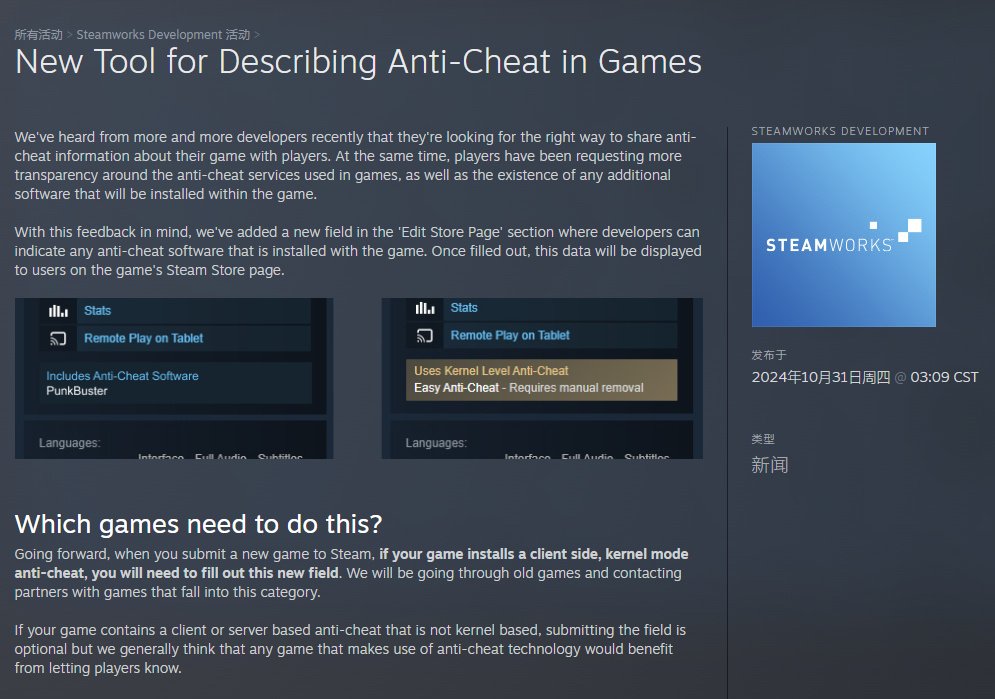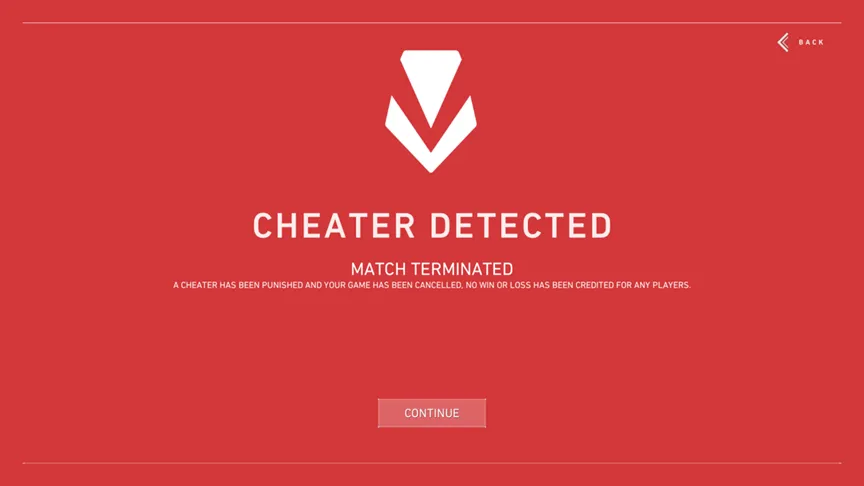Steam requires developers to clearly indicate whether their games utilize “kernel-level” anti-cheat technology. This information will be displayed to users on the game's store page, and a new field has been added to the developer's “Edit Store Page” for this purpose.

Steam stated: Players want transparency regarding the anti-cheat services used in games and whether additional software will be installed. It also called on developers: Any game employing anti-cheat technology should inform players of this information, thereby instilling greater confidence and fostering a more positive gaming experience.
This announcement primarily addresses the increasingly intense security challenges in the gaming industry. Certain popular games have encountered kernel-level cheating, prompting game developers to implement kernel-level anti-cheat technologies to counter these threats.
Kernel-level cheating refers to situations where cheating users gain kernel-level privileges within the operating system, enabling them to access and modify core data structures such as memory, processes, and hardware. Because kernel-level cheating programs operate at the deepest level of the operating system, such cheating activities become significantly more difficult to detect.
To combat cheating that exploits low-level system vulnerabilities, some manufacturers have implemented kernel-level anti-cheat technologies. Since cheaters can gain kernel-level privileges, anti-cheat systems can do the same—it's a race to see who gains the upper hand first.
For instance, a certain large-scale FPS game forces the installation of an anti-cheat application during setup. This anti-cheat application launches automatically with the computer at startup. While it can be disabled after booting up, exiting it requires restarting the computer to run the game again.

This more aggressive approach has sparked controversy and concerns among users. As a kernel-level application, it scans all programs and memory on the computer during startup, raising various privacy issues.
While kernel-level anti-cheat measures have some effectiveness, privacy remains a red line for many players. One gamer commented: “I'd rather play alongside cheaters. Because privacy matters more than the game itself.”

Beyond concerning privacy issues, many players have reported network disconnections; being mistakenly banned by kernel-level anti-cheat systems; anti-cheat software consuming excessive device memory, leading to lag and poor game performance; and even anti-cheat bugs preventing keyboard and mouse recognition...
From the player's perspective, anti-Cheats measures are meant to safeguard the gaming experience. But if these measures end up causing more problems, what should the game do?
JikGuard driven by foundational technologies, has developed multiple industry-exclusive innovations. Its product design adheres to principles of security, stability, and user-friendliness, featuring ultra-fast access, security compliance, and simplicity.








